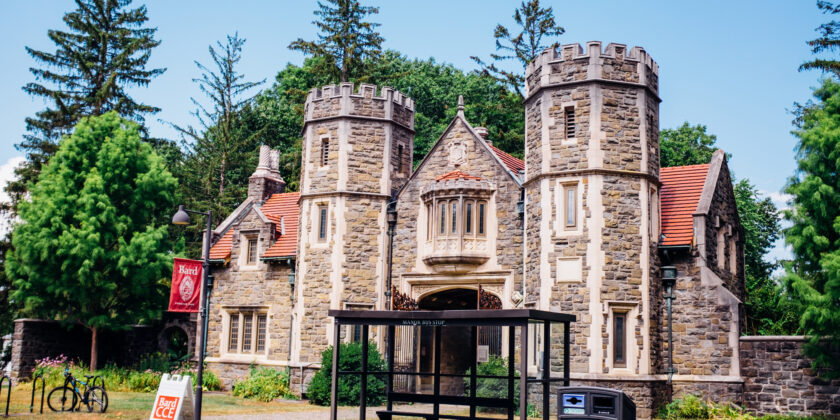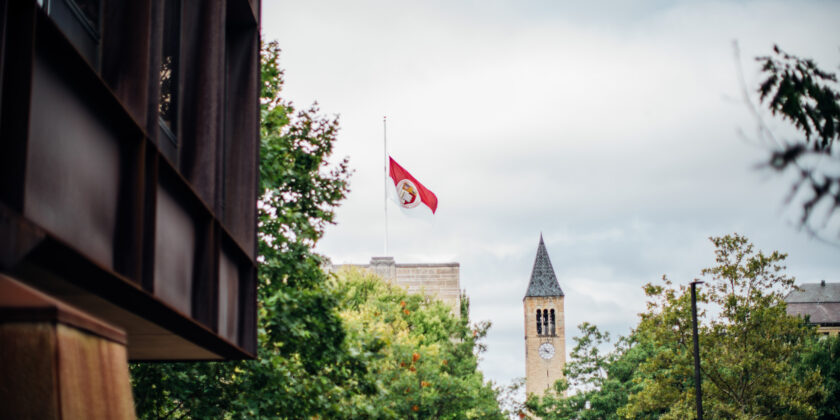Resume Magic
Yale podcast/blog: https://admissio
Michigan’s application instructions: http
Princeton’s helpful tips: https://admissio

Yale podcast/blog: https://admissio
Michigan’s application instructions: http
Princeton’s helpful tips: https://admissio

What is NewMu Teens?
A five-month, after-school program that invites young people ages 15–19 to interact with contemporary art and culture with a focus on the intersections of gender, race, class, and sexual orientation. The program is free and participants receive a stipend of $500 in support of their participation.
What can teens expect from the program?
NewMu Teens connect with peers, guest artists, and their own creativity through workshops, artmaking, and discussion. Together, NewMu Teens develop and produce a culminating creative project to share with their communities.
Where will NewMu Teens meet?
While the Museum is closed to continue construction of our building expansion, NewMu Teens will meet in our temporary office spaces at 250 Bowery every Monday from 4–6pm, January 13 to May 26, 2025, excluding school recesses.
How do I apply?
Applications are DUE Sunday, November 17, 11:59pm. Learn more here.
*Stay in the know! Subscribe*

The following are some of our favorites for students interested in real estate.
The Fordham Real Estate Institute
This summer, get a behind-the-scenes look at the many facets of the New York City real estate industry and learn what it takes to succeed in this fast-paced, high-income field. The Fordham Real Estate Institute offers high school students the opportunity to learn how real estate—the built environment in which we all live, work, and play—is designed, constructed, and developed. Through a mix of live lectures, hands-on exercises, and examinations of prominent New York City properties, students gain a unique perspective into the numerous college study and career options that the field of real estate offers. All courses are taught by experienced industry professionals from Fordham’s Real Estate Institute.
Real Estate NYC: From Design to Development Class (NYU)
Over one-third of the world’s wealth is invested in real estate, and more than nine million people in the United States work in the real estate industry. What goes on behind the scenes? What makes New York City among the most expensive real estate markets in the world? How does one get started in the field? Learn from top industry professionals during this one-week course offered by the NYU School of Professional Studies Schack Institute of Real Estate, one of the largest and most prestigious educational entities dedicated to the real estate and construction industries in the United States. Delve into all aspects of the real estate development process, and gain an understanding of the procedures, issues, and complexities that come into play in the development of real estate. Explore how real estate projects are conceived, designed, valued, financed, constructed, and managed. By week’s end, you will have gained an in-depth understanding of the phases of real estate development and the role that each sector of the industry plays in the process. Topics to be covered include the history of real estate design and development, the varying roles of members of the development team (architect, engineer, builder/CM, attorney), real estate underwriting metrics, valuation, project feasibility, design phase/construction phase considerations, sustainability measurements, and property and asset management.
NAIOP Commercial Real Estate High School Internship Program
The path to increased diversity in the commercial real estate industry begins with introducing teens to CRE prior to entering college. Students have the opportunity to explore a variety of careers in real estate, such as architecture, development, investment, construction, brokerage, and urban planning, through the lens of a case study and real estate–focused activities. Students gain a deeper understanding of key concepts in real estate by exploring these topics with Drexel University professors, industry mentors, and high-level corporate executives. The NAIOP-Drexel Summer Real Estate program features several team building, college readiness, and enrichment events on Drexel’s campus and throughout the city, including site visits to high-profile locations such as FMC and Comcast.
Online courses (free)
https://www.coursera.org/professional-certificates/keller-williams-real-estate-agent
https://www.coursera.org/learn/the-principles-of-real-estate
https://www.coursera.org/learn/wharton-ai-application-insurtech-real-estate-technology
https://www.coursera.org/projects/deep-learning-for-real-estate-price-prediction
Online courses (not free)
Real Estate Finance (For Beginners)
Basic Real Estate Finance Course
Introduction To Real Estate Finance & Investing
Shadowing someone who works in real estate is also a great option; reach out about internships via LinkedIn. (yes, you can and should be on LinkedIn in high school!)
*Stay in the know! Subscribe*

Summer program alert!
As a BOA Student Leader, you will participate in an eight-week paid internship at a local nonprofit organization where you will learn first-hand about the needs of your community and the critical role nonprofits play. In addition, you will learn valuable civic, social and business leadership skills. Each Student Leader will attend the Student Leaders Summit held in Washington, D.C. where you will learn how government, business and the nonprofit sector work together to address critical community needs. Note: in-person events will be in line with local and national guidelines around gatherings and travel and may be subject to change.
To become a Student Leader, you must:
*In-person events will be in line with local and national guidelines around gatherings and travel and may be subject to change.
Click here for FAQs on our Student Leaders program.
Applications for the 2022 program will be accepted from Monday, November 1 through Friday, January 28. Apply Now for the 2022 Student Leaders program.
*Stay in the know! Subscribe*

Penn Admissions has shared four great informative guides to help students with their college application process—and they are NOT Penn specific (although the samples they provide are)!
Narrowing Down Your List
Fill out a worksheet for each school on your list while visiting school websites, exploring virtual tours, and attending information sessions. Compare worksheets and see which schools match your must-haves. Download Guide 1
Curriculum & Majors
This second guide will help you narrow down which colleges will be the best fit for you based on academics offered. Use this worksheet to learn more about a school’s curriculum, majors, and learning opportunities. Download Guide 2
Tracking Application Requirements & Deadlines
There’s a lot to keep track of when you’re applying to multiple colleges. Use this worksheet to stay organized and take some of the stress out of the application process. Download Guide 3
Highlighting Your Extracurriculars & Activities
This worksheet will prepare you for the activities section of your college applications. Think of this guide as a way to brainstorm what you’ve been involved in through high school, what your commitment looked like, and how things may have changed in the past year. Download Guide 4
Bonus: Watch this video for even more tips on activities!
Thanks, Penn! Pair this advice with The Complete College Essay Handbook and get ready to apply!

We talk about the myth of well-roundedness a lot around here, so glad to see it talked about in this recent Forbes article!
Being a well-rounded individual is certainly admirable. What’s not to like about someone who is widely curious and has balance in their interests? When it comes to selective college admission, however, increasingly “being” well-rounded has been replaced by “doing” well-rounded. Applicants approach the experience feeling like they have to do it all. Gil Villanueva, associate vice president and dean of admission at the University of Richmond says, “the incessant belief that colleges want well-rounded students needs to just end. We want to build orchestras and we can’t have them if everyone plays the cello.” He tells students, “the reality is we want well-rounded classes. So it’s perfectly fine, if not great, that you don’t do everything at your schools. Ultimately, we simply want to see a positive impact in whatever co-curricular activity(s) you do because we can predict that you will contribute to our campuses outside of academics.”
The whole article is worth a read!
*Stay in the know! Subscribe*

COVID is still hindering in-person learning, forcing clubs to meet online (if not canceling them outright), and may even throw a wrench in in-person educational and extracurricular planning for the spring and summer. A primary focus of our work with 10th and 11th graders is extracurricular planning, and there’s one that is almost never dependent on needing to be anywhere in person: the independent study.
Independent studies (IS) can be done anywhere and work with almost any area of interest, which is why in such uncertain times, they are our go-to EC. Like the “purpose” or “passion” projects many of our students undertake, the IS is a create your own educational opportunity, so there’s no one size fits all model to follow or template you can use to just plug and play. Below are some of the details we suggest thinking through if you are interested in conceptualizing an IS.
Who
The IS requires the student to have an area of interest that they want to explore (or explore more), as well as the time, energy, and foresight to plan it on their own. However, students may want to seek out support from a teacher at their high school or a mentor from outside of school if they desire to formalize it or have some guidance or check-ins along the way.
What
Anything goes! But we suggest an area of academic interest related to what you may pursue in college. It might be a new topic, or it might be an extension of a topic you have already researched. The bottom line is, it should 1) be a topic/area you choose because you will need to be into it to make the work happen on your own and 2) if possible, it should work with your academic narrative (the academic story that unfolds in your college apps).
Where
Planning the IS as a remote activity is a good call given the uncertainties around COVID. Doing so also provides the flexibility to add on other activities/formal programming or have time for a job if that suits you while still working on the IS, as well as plan something like travel (college visits?) if that becomes reality again!
When
Winter break or early in the new year is the perfect time for students to start planning their independent study. As for an ideal start time? Many juniors are busy with testing so we suggest it as a summer activity, although students who may not have AP testing in May or who have finished or not yet started ACT/SAT testing could realistically start in the spring if their courseload allowed. The classes that appear on your transcript will always be the most important to colleges, so you don’t want your IS to get in the way of excelling in those courses.
Why
Beyond how the restrictions that might be in place around COVID make it an ideal activity, an independent study helps demonstrate to colleges your commitment to learning, your intellectual focus and curiosity, and that you are a self-directed learner interested in charting your own course and not limiting yourself to what you can take in school (or afford to take outside of it).
*Stay in the know! Subscribe*

We shared a bunch of these back in the early days of COVID. However, we found a few others recently that looked interesting. Check them out below!
Robotics for All: Robotics for All strives to provide equitable educational opportunities to students of all backgrounds, particularly low income and under-represented students, with an emphasis on teaching the fields of STEM (Science, Technology, Engineering, and Math). The goal is to reduce the opportunity gap, allowing students to gain beneficial skills for the rest of their academic and professional careers. We believe that it is important for students to have access to a quality STEM education, regardless of socio-economic status.
As an online volunteer teacher, you will be responsible for running an eight week long online class. This includes leading the two weekly synchronous classes (either on Monday/Thursday or Tuesday/Friday), evaluating student homework (assigned between each synchronous class) and managing teacher’s assistants. It will be your responsibility to ensure that the class runs smoothly and take care of any issues, whether related to student behavior or errors in code. You must possess strong leadership skills and a high level of independence. Our current curricula for online classes are the Code.org Curriculum (for K-3rd graders), Scratch Curriculum (for 4th-6th graders), Python Curriculum (for 6th-8th graders), CAD Curriculum (for 6th-8th graders), and Fusion Curriculum (for 7th-8th graders). You are expected to have mastered the curriculum they teach. Learn more here.
The Empowerment Factory (TEF): a non-profit dedicated to giving youth the skills they need to lead happier, healthier more empowered lives. We focus on three areas of development: creativity, self esteem, and civic pride. Our Creative Squad programs blend hands-on activities with social emotional learning (SEL) and environmental education. Our vision is for every child to develop the confidence and ability to express themselves and become successful in school and life. Every child should feel that they matter and can make a difference in the world around them.
The Empowerment Factory is partnering with The United Way to bring you a fun and safe volunteer opportunity folding paper Peace Cranes! The purpose of this initiative is to share positivity and hopeful aspirations for our community. The Peace Cranes will be used to create a public art installation in January that aspires to exemplify the goal of this tradition. Learn more here.
Girl Scouts: Girl Scouting builds girls of courage, confidence, and character, who make the world a better place. We seek to accomplish this by providing girls opportunities to develop their potential and have fun with their peers in a supportive, all-girl setting.
Do you have a passion for a particular topic or life skill? Do you want to create a fun event that shares your enthusiasm with girls? You could design an event that helps girls earn a Girl Scout badge related to your specialty or help teach girls a skill they need to grow into the leaders of tomorrow! If you have a love for STEM, outdoors, or the arts – there are ways you can use your skills and resources to provide an experience that helps girls explore something new. There are dozens of new badges that will inspire you to think of creative ways to bring the projects to life for a group of girls, including things like “Inside Government”, “Eco Advocate” or “Philanthropist” badges! You can decide how many girls you’d like to participate, select what age girls you’d like to involve, and pick a date and time, and an online meeting platform that you’re comfortable with! You can also use materials we provide to host a meeting rather than making your own program. Learn more here.
Head to Volunteer Match to search for other remote roles!
*Stay in the know! Subscribe*

We are entering the time of year when we re-post old (sometimes very old) posts. This subject seems relevant as we approach summer (and in the midst of COVID, when doing more can be tough anyway).
Colleges look for students with something unique, a specific talent, skill, or interest to add to their next class. Students who drill down on an interest or two early on in high school will be better positioned to tell a clear, focused story in their applications. By doing so, they hand the reader of their file exactly what they are looking for—they make it easy to see the value you will add on campus.
This might mean doing a lot of exploration early in high school and this is okay. However, don’t be afraid to find something you like, drill down on it, and not do too much else extracurricularly. You don’t want a resume that reads like a laundry list anyway.
Here’s what a few top colleges have to say on the subject via Niche:
The question I ask a lot when thinking about activities: How much can you meaningfully contribute to more than a few activities? Narrowing down your interests and corresponding activities can provide the time and space needed to engage more meaningfully and at a higher level in the one or two things you love the most. It’s a bonus if these activities relate to your potential college major, or support it in some way!
Remember, colleges seek to build a well-rounded class comprised of students with unique talents and skills, not a class full of generalists.
*Stay in the know! Subscribe*

Awesome opportunity via the NYT/The Learning Network:
“We are running our Third Annual Podcast Contest right now for middle and high school students until May 19. To enter, students should submit a five-minute podcast on any subject they want, including sports, music, politics and literature. They can work individually or as a team, and they can create their podcasts from home.
If you’re not sure how to get started with podcasting, we just published two new resources that can help: our Podcasting Unit and our Podcasting Mentor Text. Each provides a step-by-step guide for creating an original podcast, and we offer 23 winning student podcasts as models.
Sign up for our free webinar on April 29 to help you learn more about our podcast contest and podcasting in general. After all, podcasting is a great way for students to strengthen their writing, research and digital media skills.”
*Stay in the know! Subscribe*